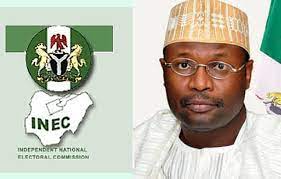Ahead of the 2027 general elections, the Independent National Electoral Commission (INEC) and the Joint Committee of the National Assembly on Electoral Matters, have commenced review of electoral laws for another round of reforms.
The Commission and the Joint Committee of the National Assembly on Electoral Matters met in Lagos on Monday.
The Chairman of the Commission, Prof Mahmood Yakubu, in a welcome speech, appealed to the lawmakers to expedite action to conclude the electoral legal framework speedily so that the Commission would have enough time for implementation,
According to Prof Yakubu, the Lagos retreat was “a unique opportunity to improve our electoral process, the foundation of which is rooted in the legal framework.”
Yakubu said, “As we embark on yet another review of our electoral laws, we will share with the lawmakers our field experience and draw attention to some of the proposed reforms and their implications for the management of elections.
“I wish to appeal to the National Assembly to expedite action to conclude the electoral legal framework speedily so that the Commission will have enough time for implementation.
The chairman also recalled previous exercises which led to electoral reforms and their benefits in the Nigeria’s electoral system.
“Some of you here may recall that five years ago, a similar retreat was organized here in Lagos in March 2020 involving INEC and the two Committees of the National Assembly (NASS) on Electoral Matters.
“That effort, among many other initiatives, resulted in the repeal and re-enactment of the Electoral Act 2010 (as amended). The result is the current Electoral Act 2022.
‘At that retreat, and for the first time in the nation’s effort to reform its electoral laws, the lawmakers, the election management body and critical stakeholders involved in the electoral process as observers and advocates for electoral reform, discussed various aspects of the nation’s electoral laws, many of which had to be reviewed to provide legal backing to some of the innovations introduced by INEC itself, especially in the area of technology; make our electoral laws compliant with judicial pronouncements arising from pre-election and post-election litigations; remove ambiguities and provide clarity in some areas arising from the reports of national and international election observers; introduce good practices learnt from other relevant jurisdictions during study tours and election observation missions; and to implement some of the recommendations from the high profile electoral reform committees, such as the Justice Mohammed Uwais Committee (2009), the Sheikh Ahmed Lemu Committee (2011) and the Senator Ken Nnamani Committee (2017).
“For us in INEC, the coming together of lawmakers, who also have field experience as practising politicians, and the Commission as the election management body saddled with the constitutional responsibility of organizing, undertaking and supervising all elections in Nigeria (except the local government elections) is a positive development for electoral reform in Nigeria.
“We believe that a retreat such as this one provides a focused engagement and a better insight into the challenges of election management beyond what can be achieved in a few hours of public hearing in a Committee Room at the National Assembly.
“I want to draw our attention to one of the benefits from the last retreat and the specific amendment to the Electoral Act to which many Nigerians may not have paid attention.
“As we are aware, a perennial problem in the conduct of elections in Nigeria has been the postponement of the dates fixed for General Elections on two occasions since 2011 as a result of logistics challenges associated with the production and delivery of sensitive materials (ballot papers and result sheets). The present Commission was determined to change the embarrassing narrative.
“After a thorough review, we came to the conclusion that the problem was not one of technical capacity. Nigerian printers have the capacity to meet our needs.
“The real challenge was time management. Under the 2010 Electoral Act (as amended), the Commission had just 60 days between the conclusion of party primaries and the conduct of the General Election election to know which political party was fielding candidates in each of the 1,491 seats made up of 1 presidential constituency, 28 governorship, 109 senatorial, 360 federal and 993 state constituencies.
“We need the information for customization of the ballot papers and results sheets. Moreover, the Voters’ Register, which is the basis for planning the procurement of sensitive materials, has been increasing with every election by an average of 10 million new voters from 2011 to the last election in 2023.
“The solution was to amend the Electoral Act to provide for more time between party primaries and the nomination of candidates on the one hand and the dates fixed for the election on the other. The Commission initially asked for one year, which was not favourably considered by the lawmakers who eventually settled for the current 180 days (that is six months).
“As a result of that decision, the Commission had ample time to plan and consequently, for the first time in three electoral cycles, the 2023 General Election was not postponed on account of logistics associated with the printing and delivery of sensitive materials.
“Equally significant is that for the first time since the restoration of democracy in 1999, not a single sheet of paper for the 2023 General Election was printed outside Nigeria. Everything was done within the country for which the Commission was commended by the Chartered Institute of Professional Printers of Nigeria (CIPPON).”
